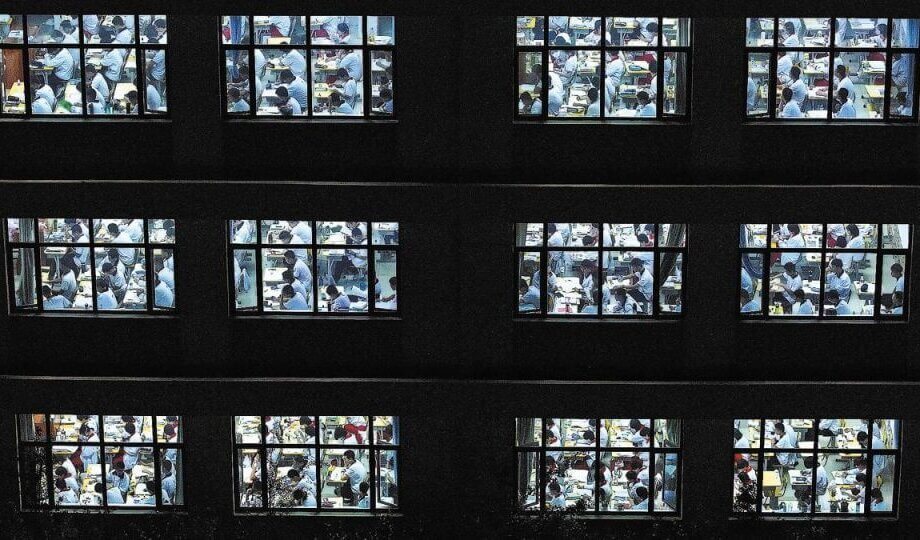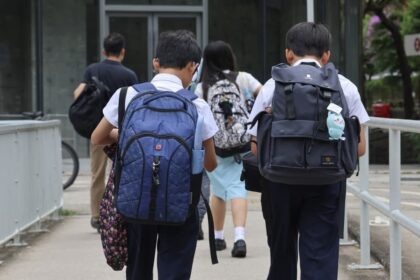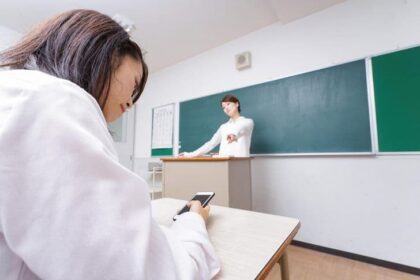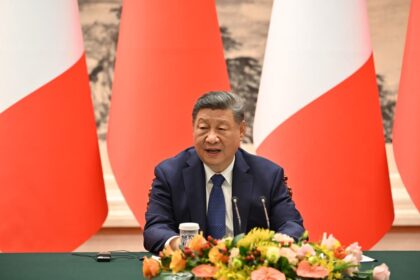China Deploys AI Surveillance and Tech Crackdown to Safeguard 2025 Gaokao Exam
China’s national college entrance exam, known as the gaokao, is underway for 13.35 million students in 2025. This high-stakes test, which runs from June 7 to June 10, is widely regarded as a pivotal moment in the lives of Chinese high school seniors, determining university admissions and shaping future opportunities. This year, authorities have introduced unprecedented technological measures to ensure fairness and security, including real-time artificial intelligence (AI) surveillance and a nationwide freeze on AI-powered tools that could facilitate cheating.
- China Deploys AI Surveillance and Tech Crackdown to Safeguard 2025 Gaokao Exam
- Why Is the Gaokao So Important?
- AI Surveillance: How Technology Is Changing Exam Security
- Tech Companies Freeze AI Tools to Prevent Cheating
- Crackdown on AI-Related Scams and Fraud
- Comprehensive Support for Students
- Broader Implications: Balancing Security, Fairness, and Privacy
- In Summary
Why Is the Gaokao So Important?
The gaokao is often described as China’s most significant academic event. Unlike university admissions in countries like the United States, which consider a range of factors such as essays, extracurriculars, and years of academic records, Chinese students largely rely on their gaokao scores to secure a place at university. For many, especially those from smaller cities or lower-income backgrounds, the exam is seen as a powerful social equalizer and a rare opportunity for upward mobility.
According to the Ministry of Education, over 47 million students were enrolled in Chinese colleges and universities by 2023, reflecting the country’s commitment to expanding access to higher education. Despite a slight decrease of 70,000 candidates from last year, the 2025 gaokao remains a massive logistical and social undertaking, with families, schools, and local governments mobilizing nationwide support for examinees.
AI Surveillance: How Technology Is Changing Exam Security
To combat evolving cheating tactics, Chinese authorities have rolled out advanced AI-powered surveillance systems in exam centers across several provinces, including Jiangxi, Hubei, Guangdong, and Liaoning. These systems use computer vision and behavior recognition algorithms to monitor exam rooms in real time, automatically flagging suspicious actions such as whispering, glancing around, passing items, or using prohibited devices.
For example, in Benxi, Liaoning, every exam room is equipped with intelligent monitoring that can detect not only student misconduct but also inattentive proctors. The AI can match up to 40 types of abnormal behavior models, and any flagged footage is reviewed by human supervisors to ensure accuracy and fairness. As Wang Tianlong, a recent examinee from Guangdong, explained:
“AI only assists. Final decisions still rest with human exam supervisors.”
These measures are complemented by strict entry protocols, including facial recognition, fingerprinting, and iris scans to prevent impersonation, as well as upgraded security gates that detect even small electronic devices. National radio authorities also monitor for unauthorized wireless signals to block external communication attempts.
Tech Companies Freeze AI Tools to Prevent Cheating
In a coordinated move, China’s leading tech firms—including Alibaba, Tencent, ByteDance, and Moonshot—have temporarily disabled key AI features such as photo recognition and question-answering during the exam period. Popular AI chatbots like Qwen, Doubao, Yuanbao, and Kimi now display messages explaining that these functions are suspended to ensure exam fairness.
This industry-wide freeze is a direct response to concerns that students could use AI to solve exam questions in real time. The suspension, which lasts for the duration of the gaokao, has been widely publicized and even sparked complaints from university students unable to access these tools for unrelated assignments.
Crackdown on AI-Related Scams and Fraud
Beyond surveillance and tech restrictions, authorities are also targeting a surge in AI-related scams. Some online sellers and private tutors have marketed so-called “AI prediction” mock papers, claiming that advanced models can forecast actual exam questions. These materials are often sold at inflated prices, exploiting the anxieties of students and parents.
However, education experts and AI platforms have dismissed these claims as marketing gimmicks. When asked to predict gaokao questions, leading AI services responded that the content is classified as a state secret and cannot be accessed. Chen Zhiwen, a member of the National Education Examination Steering Committee, clarified:
“It’s not that AI or famous tutors have predicted the questions correctly, but that the gaokao papers follow a pattern.”
Authorities have launched campaigns to investigate and remove illegal and misleading information related to the exams, targeting not only AI prediction scams but also rumors, leaked questions, and organized cheating.
Comprehensive Support for Students
Recognizing the immense pressure on examinees, the Ministry of Education and local governments have implemented a range of support measures. These include free transportation, psychological counseling, and special accommodations for over 14,000 students with disabilities, such as Braille test papers and separate exam rooms for the visually impaired.
Communities have also rallied to create a calm environment: performances and public events are postponed, traffic is managed to ensure timely arrival, and quiet zones are established around exam centers. In some cities, students can access free taxi rides or receive on-site medical support, reflecting the collective commitment to a smooth and fair exam experience.
Broader Implications: Balancing Security, Fairness, and Privacy
The deployment of AI surveillance and the suspension of AI tools during the gaokao highlight both the promise and the challenges of integrating technology into education. While these measures are widely seen as necessary to uphold the integrity of the exam, they also raise questions about privacy, the limits of surveillance, and the evolving relationship between students and technology.
China’s approach stands in contrast to countries like the United States, where there is less centralized control over exams and no comparable nationwide shutdown of AI tools. As AI continues to reshape education globally, the gaokao serves as a case study in how governments and institutions can respond to new risks while striving to maintain fairness and opportunity for all students.
In Summary
- 13.35 million students are taking the 2025 gaokao, China’s crucial national college entrance exam.
- Authorities have introduced real-time AI surveillance in exam rooms to detect and prevent cheating.
- Major tech companies have temporarily disabled AI features like photo recognition during the exam period.
- Crackdowns target not only cheating but also AI-related scams and fraudulent “prediction” services.
- Comprehensive support measures are in place for students, including accommodations for those with disabilities and psychological counseling.
- The measures reflect China’s commitment to fairness and integrity in education, while raising important questions about technology and privacy.












